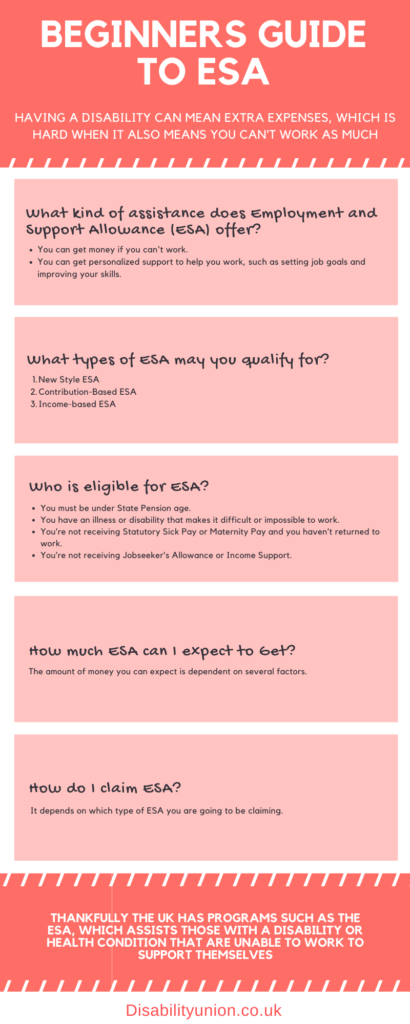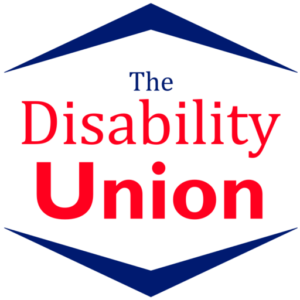
A lot of disabled people cannot work full-time. Disability can affect how long you can do certain tasks or even the number of tasks you can do in a given day. Unfortunately, rent, groceries, and other expenses don’t care how much you can work. They need to be paid, whether you have the money or not. Thankfully, the UK has a program called Employment and Support Allowance (ESA), which assists those with a disability or health condition that affects how much they can work. Today, we are going to walk through what specifically the ESA offers, who is eligible, and how to claim it.
What Kind of Assistance Does Employment and Support Allowance Offer?
ESA offers two forms of assistance for those who are ill or disabled:
- You can get money if you can’t work.
- You can get personalised support to help you work. This includes things like setting job goals and improving your skills.
There are also three different types of ESA:
New Style ESA
To get new style ESA, you must have paid a certain amount of National Insurance contributions, and you can’t be getting the Severe Disability Premium. If you’re eligible for Universal Credit, you could get that and new style ESA at the same time, but you won’t necessarily get extra money.
Contribution-Based ESA
This is very similar to the new style ESA. In both, you must have made a certain number of National Insurance contributions and you must meet the eligibility criteria. The difference is, you can still receive contribution-based ESA if you get the Severe Disability Premium.
Income-based ESA
You may be able to get this if you’ve not met the criteria for National Insurance contributions in the last two to three years. You must also be entitled to the Severe Disability Premium.
Who is Eligible for ESA?
Not everyone is eligible for ESA. There’s a list of things you will need to meet in order to qualify, including:
- You must be under State Pension age.
- You have an illness or disability that makes it difficult or impossible to work.
- You’re not receiving Statutory Sick Pay or Maternity Pay and you haven’t returned to work.
- You’re not receiving Jobseeker’s Allowance or Income Support.
You will still qualify if you are self-employed or unemployed, or even a student. If your illness is terminal, you might be eligible to be fast-tracked via the Special Rules for Terminal Illness (SRTI), though you still must meet the above criteria. You must also meet the government’s definition of terminal illness:
you are considered terminally ill if your death could be ‘reasonably expected’ within the next six months.
If you are unsure whether or not you could fit under this definition, speak with your doctor.
How Much ESA can I Expect to Get?
The amount of money you can expect is dependent on several factors. During your assessment, you will get up to £58.90 a week if you’re under 25 years of age, and up to £74.35 a week if you’re over 25. After the assessment period, you’ll be placed into one of two groups: work-related activity group or support group. Work-related activity group can expect to get up to £74.35 a week while the support group can expect up to £113.55 a week. If you have a terminal illness, you are automatically placed in the support group.
How Do I Claim ESA?
It depends on what kind of ESA you are going to be claiming. This webpage is the best at explaining how to start the process, as well as direct you to the answers to any questions you may have. Remember, ESA isn’t going to kick in overnight, so the sooner you start the process the sooner you’ll start getting the help.
Having a disability can mean extra expenses, which is hard when it also means you can’t work as much. Thankfully the UK has programs such as the ESA to help those who need it.


